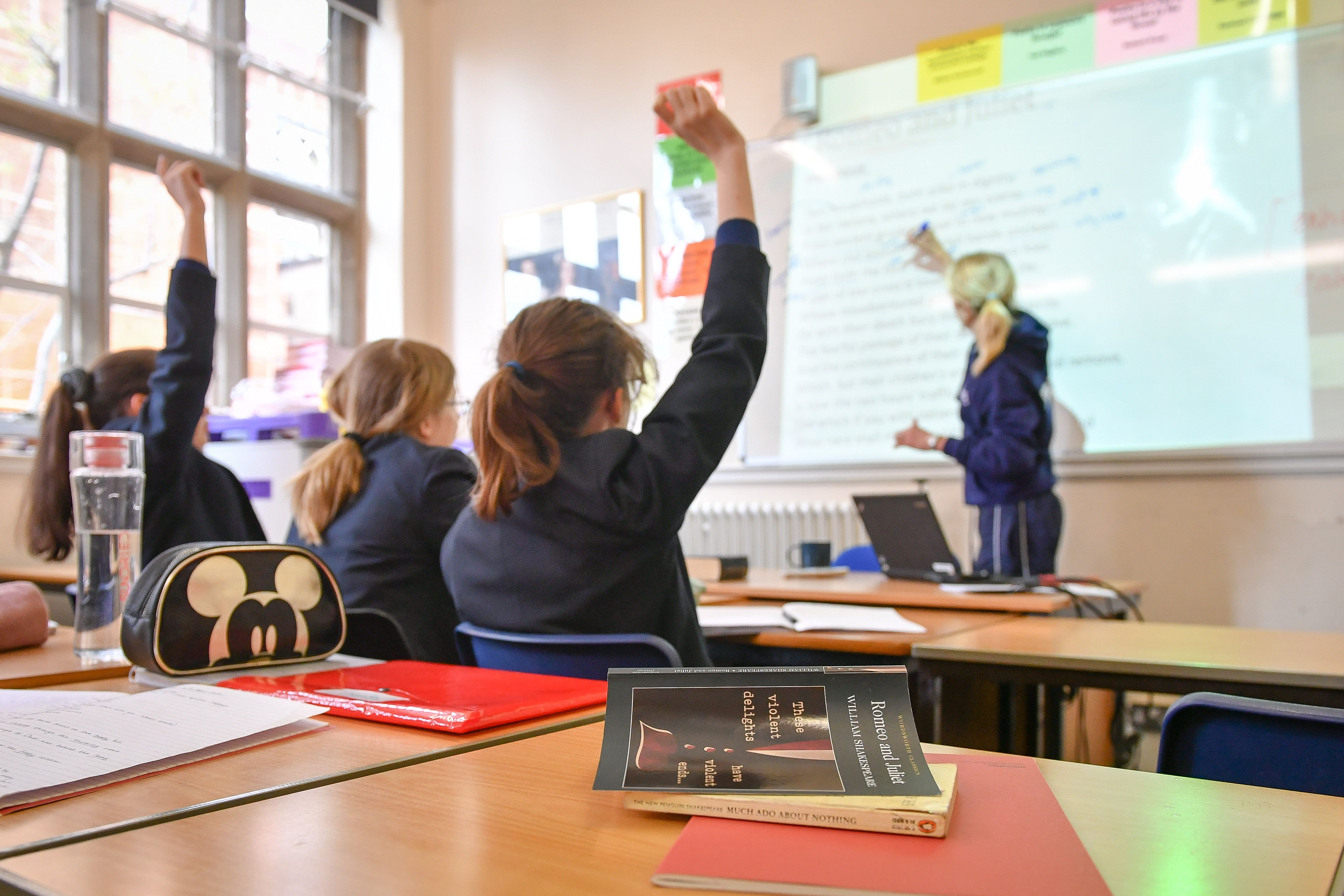Language learning in Northern Ireland ‘slowly recovering from pandemic’ – report
Research by the British Council found that the decline in language learning at post-primary schools is plateauing.

Your support helps us to tell the story
From reproductive rights to climate change to Big Tech, The Independent is on the ground when the story is developing. Whether it's investigating the financials of Elon Musk's pro-Trump PAC or producing our latest documentary, 'The A Word', which shines a light on the American women fighting for reproductive rights, we know how important it is to parse out the facts from the messaging.
At such a critical moment in US history, we need reporters on the ground. Your donation allows us to keep sending journalists to speak to both sides of the story.
The Independent is trusted by Americans across the entire political spectrum. And unlike many other quality news outlets, we choose not to lock Americans out of our reporting and analysis with paywalls. We believe quality journalism should be available to everyone, paid for by those who can afford it.
Your support makes all the difference.The popularity of learning languages at Northern Ireland’s schools is “slowly recovering from the pandemic”, a report by the British Council has found.
The Language Trends Northern Ireland report found that the decline in language learning at post-primary schools is plateauing, with Spanish emerging as the most popular, overtaking French.
The research was led by Dr Ian Collen, director of the Northern Ireland Centre for Information on Language Teaching and Research (NICILT) at Queen’s University Belfast, and follows a previous report which found that language lessons were “hardest hit” during Covid-19.
This year’s report found that Spanish is now the language most frequently taught in Northern Ireland’s schools at both GCSE and A-level, overtaking French as the most popular GCSE language in summer 2021.
Up until 2021 French was the most studied language at GCSE, however, the language has been on a steep decline since the turn of the millennium.
Meanwhile, Irish has remained relatively stable at GCSE since 2007, and at A-level, it has now replaced French as the second most popular language.
German figures continue to decline, with the subject offered only in 17% of responding schools at Key Stage 3, and nearly a 50% decrease in uptake at GCSE from 2002 to 2022.
Schools also offer several languages as part of extra-curricular or enrichment subjects at Key Stage 4, including Polish, Portuguese, Arabic and Mandarin, with a growing number of schools offering newcomer pupils the opportunity to take exams in their home or community languages (63.2% of schools in 2023 compared to 56.3% in 2021).
Despite this, there has been a sharp decline in the uptake of these languages at GCSE during the pandemic.
In terms of languages that students would like to learn, Italian came out on top. Almost one in five (19%) of Year 9 pupils expressed an interest in learning Italian in addition to the language(s) they already learn at school, followed by Spanish (16.6%) and then Irish (11.3%).
When asked about the value of languages, almost all pupils do not see the potential for languages to be a part of their future careers – with just 14.2% of the 1,158 Year 9 pupils surveyed expressing any likelihood of using languages in the future.
However, motivation for language learning in Year 9 is still high with most young people (74%) enjoying languages at Key Stage 3.
Meanwhile, in primary schools, languages are also recovering, having almost collapsed following the pandemic.
The report shows that 51% of responding primary schools currently teach languages as part of the curriculum, with Spanish the main language taught at Key Stage 2, closely followed by French.
When asked if languages should be statutory at Key Stage 3, 84% of responding schools agreed, with Northern Ireland remaining the only part of the UK and Ireland where pupils at primary school do not have an entitlement to learn a language as part of the curriculum.
Dr Collen said that following years of decline, language learning in Northern Ireland has stabilised.
“Whilst other UK jurisdictions and Ireland are investing in language learning, there is an urgent need to start similar endeavours in Northern Ireland to ensure we have a multilingual workforce ready to grow our economy,” he said.
“It would be timely to overhaul curriculum content and assessment of languages to better reflect the lives of young people today, and offer appropriate vocational qualifications in languages through progression pathways for all learners.”
Jonathan Stewart, director, British Council Northern Ireland, said the latest report gives cause for optimism.
“Our increasingly multicultural society makes it more important than ever to promote languages in our schools, equipping young people with the skills they need to thrive in future careers,” he said.
“Strong language skills enhance communication and interpersonal skills, expand career opportunities, and develop intercultural awareness.”